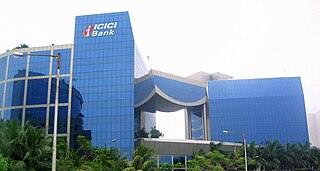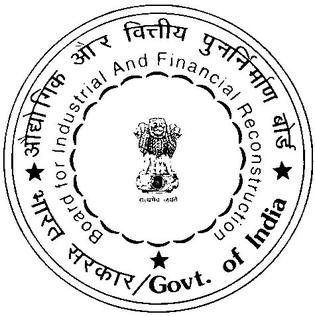
A security is a tradable financial asset. The term commonly refers to any form of financial instrument, but its legal definition varies by jurisdiction. In some countries and languages people commonly use the term "security" to refer to any form of financial instrument, even though the underlying legal and regulatory regime may not have such a broad definition. In some jurisdictions the term specifically excludes financial instruments other than equity and fixed income instruments. In some jurisdictions it includes some instruments that are close to equities and fixed income, e.g., equity warrants.

The Overseas Private Investment Corporation (OPIC) was the United States Government's Development finance institution until it merged with the Development Credit Authority (DCA) of the United States Agency for International Development (USAID) to form the U.S. International Development Finance Corporation (DFC). OPIC mobilized private capital to help solve critical development challenges and in doing so, advanced the foreign policy of the United States and national security objectives.

ICICI Bank Limited is an Indian multinational bank and financial services company headquartered in Mumbai with a registered office in Vadodara. It offers a wide range of banking and financial services for corporate and retail customers through various delivery channels and specialized subsidiaries in the areas of investment banking, life, non-life insurance, venture capital and asset management.

The Bank of Korea is the central bank of South Korea and issuer of South Korean won. It was established on 12 June 1950 in Seoul, South Korea.
Housing Development Finance Corporation was an Indian private-sector mortgage lender headquartered based in Mumbai. It was widely recognised as the largest housing finance company in India. In addition to its core mortgage lending operations, HDFC had diversified interests through its associate and subsidiary companies, including banking, life and general insurance, asset management, venture capital, and deposit services.

The Development Bank of the Philippines (DBP) is a state-owned development bank headquartered in Makati, Philippines. It is primarily tasked to provide banking services to cater to the needs of agricultural and industrial enterprises. It has 146 branches including 14 branch lite units.
The IDBI Bank Limited is a Scheduled Commercial Bank under the ownership of Life Insurance Corporation of India (LIC) and Government of India. It was established by Government of India as a wholly owned subsidiary of Reserve Bank of India in 1964 as Industrial Development Bank of India, a Development Finance Institution, which provided financial services to industrial sector. In 2005, the institution was merged with its subsidiary commercial division, IDBI Bank, and was categorised as "Other Development Finance Institution" category. Later in March 2019, Government of India asked LIC to infuse capital in the bank due to high NPA and capital adequacy issues and also asked LIC to manage the bank to meet the regulatory norms. Consequent upon LIC acquiring 51% of the total paid-up equity share capital, the bank was categorised as a 'Private Sector Bank' for regulatory purposes by Reserve Bank of India with effect from 21 January 2019. IDBI was put under Prompt Corrective Action of the Reserve Bank of India and on 10 March 2021 IDBI came out of the same. At present direct and indirect shareholding of Government of India in IDBI Bank is approximately 95%, which Government of India (GoI) vide its communication F.No. 8/2/2019-BO-II dated 17 December 2019, has clarified and directed all Central/State Government departments to consider IDBI Bank for allocation of Government Business. Many national institutes find their roots in IDBI like SIDBI, EXIM, National Stock Exchange of India, SEBI, National Securities Depository Limited. Presently, IDBI Bank is one of the largest Commercial Banks in India.
Industrial Development Bank of Pakistan is a Pakistani state-owned development bank located in Karachi, Sindh, Pakistan. It is among the oldest financing institutions in Pakistan.

Small Industries Development Bank of India (SIDBI) is the apex regulatory body for overall licensing and regulation of micro, small and medium enterprise finance companies in India. It is under the jurisdiction of Ministry of Finance, Government of India headquartered at Lucknow and having its offices all over the country.

The Ministry of Finance is a ministry within the Government of India concerned with the economy of India, serving as the Treasury of India. In particular, it concerns itself with taxation, financial legislation, financial institutions, capital markets, currency regulation, banking service, centre and state finances, and the Union Budget.

A non-banking financial institution (NBFI) or non-bank financial company (NBFC) is a financial institution that is not legally a bank; it does not have a full banking license or is not supervised by a national or international banking regulatory agency. NBFC facilitate bank-related financial services, such as investment, risk pooling, contractual savings, and market brokering. Examples of these include hedge funds, insurance firms, pawn shops, cashier's check issuers, check cashing locations, payday lending, currency exchanges, and microloan organizations.
Non-Banking Financial Company (NBFC) is a company registered under the Companies Act, 1956 of India, engaged in the business of loans and advances, acquisition of shares, stock, bonds, hire-purchase insurance business or chit-fund business, but does not include any institution whose principal business is that of agriculture, industrial activity, purchase or sale of any goods or providing any services and sale/purchase/construction of immovable property.
All India Financial Institutions (AIFI) is a group composed of financial regulatory bodies that play a pivotal role in the financial markets. Also known as "financial instruments", the financial institutions assist in the proper allocation of resources, sourcing from businesses that have a surplus and distributing to others who have deficits - this also assists with ensuring the continued circulation of money in the economy. Possibly of greatest significance, the financial institutions act as an intermediary between borrowers and final lenders, providing safety and liquidity. This process subsequently ensures earnings on the investments and savings involved. In Post-Independence India, people were encouraged to increase savings, a tactic intended to provide funds for investment by the Indian government. However, there was a huge gap between the supply of savings and demand for the investment opportunities in the country.

Bangladesh Development Bank PLC. is a state-owned commercial bank in Bangladesh. As a Public Limited Company, BDBL formally embarked on its journey on January 03, 2010. It extends financial assistance for setting up industries and provides all kinds of commercial banking services to its customers through its branch network in Bangladesh.

JSW Steel Limited is an Indian multinational steel producer based in Mumbai and is a flagship company of the JSW Group. After the merger of Bhushan Power & Steel, Ispat Steel and Jindal Vijayanagar Steel Limited, JSW Steel became India's second largest private sector steel company.
From the 1991 India economic crisis to its status of third largest economy in the world by 2011, India has grown significantly in terms of economic development, so has its banking sector. During this period, recognizing the evolving needs of the sector, the Finance Ministry of the Government of India set up various committees with the task of analyzing India's banking sector and recommending legislation and regulations to make it more effective, competitive and efficient.

Central Registry of Securitisation Asset Reconstruction and Security Interest of India (CERSAI) is a central online security interest registry of India. It was primarily created to check frauds in lending against equitable mortgages, in which people would take multiple loans on the same asset from different banks.

The Board for Industrial and Financial Reconstruction (BIFR) was a development finance institution under the ownership of Ministry of Finance, Government of India, part of the Department of Financial Services of the Ministry of Finance. Set up in January 1987 by the Rajiv Gandhi government, its objective was to determine sickness of industrial companies and to assist in reviving those that may be viable and shutting down the others. On 1 December 2016, the Narendra Modi government dissolved BIFR and referred all proceedings to the National Company Law Tribunal (NCLT) and National Company Law Appellate Tribunal (NCLAT) as per provisions of Insolvency and Bankruptcy Code.
Public Sector Undertakings (PSU) in India are government-owned entities in which at least 51% of stake is under the ownership of the Government of India or state governments.These type of firms can also be a joint venture of multiple PSUs. These entities perform commercial functions on behalf of the government. Depending on the level of government ownership, PSUs are officially classified into two categories: Central Public Sector Undertakings (CPSUs), owned by the central government or other CPSUs; and State Public Sector Undertakings (SPSUs), owned by state governments. CPSU and SPSU is further classified into Strategic Sector and Non-Strategic Sector. Depending on their financial performance and progress, CPSUs are granted the status of Maharatna, Navaratna, and Miniratna.











